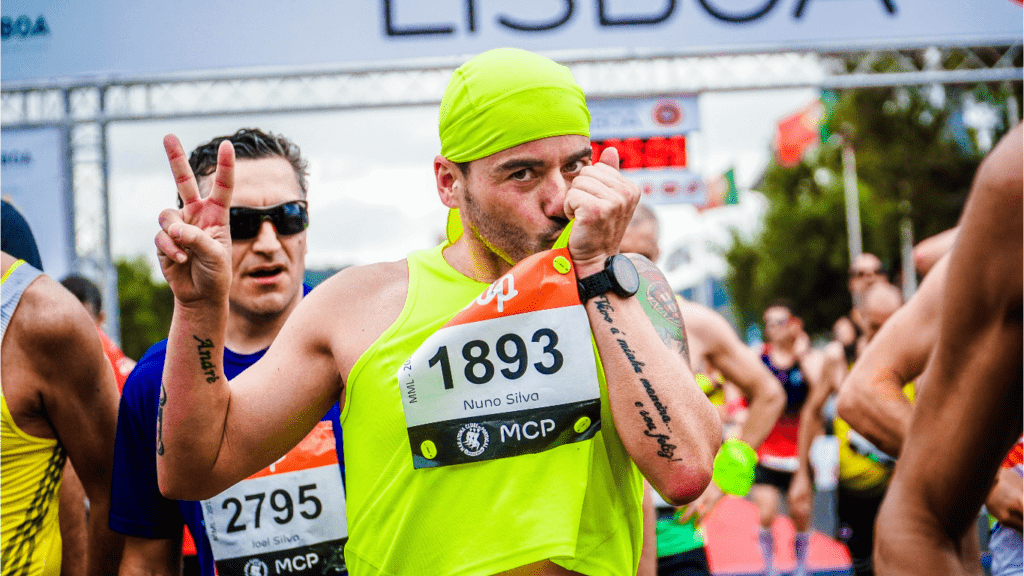The Importance of Mindset in Athletics
A strong mindset is crucial for athletic performance. It can influence how athletes approach their training and competitions.
Understanding the Psychology Behind Performance
Athletes perform better with a positive mindset. Confidence reduces anxiety and increases focus, leading to optimal performance.
According to a study in the Journal of Applied Sport Psychology, athletes who use positive self-talk show significant improvement in their performance metrics. Beliefs influence actions. When athletes believe they can succeed, their behaviors align to achieve that success.
The Connection Between Mindset and Physical Endurance
Mindset directly affects physical endurance. Consistent positive thinking boosts resilience, helping athletes push through fatigue. T
he brain releases endorphins in response to positive thoughts, which act as natural painkillers. This mind-body connection enables endurance that might seem impossible under a negative mindset.
A Frontiers in Psychology study confirmed that athletes with a positive outlook experienced less perceived exertion during intense workouts.
This indicates that mindset not only influences athletic capability but also enhances endurance.
The Power of Positive Thinking in Running
Positive thinking transforms running performance. It shifts mindset, breaking barriers and enabling athletes to achieve their goals.
How Positive Thinking Influences Running Performance

Positive thinking reshapes performance outcomes. When runners maintain a positive mindset, cortisol levels decrease, resulting in reduced stress (Smith et al., 2022). This leads to more effective training sessions.
Positive self-talk enhances motivation. Runners who engage in affirmations (“I can do this”, “I am strong”) see noticeable improvements in pace and stamina.
Visualization techniques mentally prepare athletes. When runners picture successful races, their probability of achieving those results increases.
Techniques to Foster a Positive Attitude
Gratitude journaling shifts focus. Writing down three things I’m grateful for each day boosts my mood and keeps me motivated.
Setting realistic goals maintains positivity. Breaking down large goals into manageable milestones ensures progress and reduces feelings of overwhelm.
Connecting with supportive communities increases positivity. Joining running clubs or online forums provides encouragement and keeps negativity at bay.
Mindful meditation improves concentration. Spending 5-10 minutes daily on meditation enhances my focus on positive aspects of training and racing.
Strategies for Enhancing Running Performance
Optimizing your mental game is crucial for better running outcomes.
Mental Conditioning Exercises for Runners
Incorporate mental conditioning to enhance focus. Regular practice of mindfulness techniques, such as meditation, helps build concentration and reduce stress.
Using breathing exercises can stabilize your mind, providing better control during runs. These practices lead to more consistent performance and quicker recovery times.
Integrating Visualization and Goal-Setting
Engage in visualization techniques for mental training. Imagine successfully completing your runs, focusing on each part of the process from start to finish.
This mental rehearsal boosts confidence and prepares your mind for actual runs. Pair these visualizations with clear, achievable goals. Setting specific, measurable targets creates a roadmap for success and keeps motivation high.
Case Studies and Success Stories
Positive thinking transforms running performance. Examining real-life cases provides insight into its impact.
Real-Life Impacts of Positive Thinking on Professional Runners
- Deena Kastor: Former American long-distance runner Deena Kastor credits her career resurgence to a positive mindset. She won the 2005 Chicago Marathon after adopting mental conditioning practices to boost confidence and resilience.
- Eliud Kipchoge: The world record-holding marathoner Eliud Kipchoge emphasizes the power of positivity. He practices visualization and positive affirmations to maintain focus and persevere in races. His consistent success illustrates the efficacy of a positive outlook.
- Meb Keflezighi: Olympic silver medalist Meb Keflezighi attributes his sustained performance to mental fortitude. By focusing on positive thinking and goal-setting, Keflezighi overcame numerous setbacks and achieved remarkable career longevity.
Transformative Experiences from Amateur Runners
- Mary Johnson: Mary Johnson, an amateur marathoner, improved her race times by integrating positive affirmations into her training. Initially struggling with self-doubt, she embraced mental conditioning techniques that led to a Boston Marathon qualification.
- John Stevens: Recreational runner John Stevens battled mental fatigue during long runs. By adopting gratitude journaling and mindfulness practices, he significantly enhanced his endurance, completing his first ultramarathon.
- Emily Roberts: Emily Roberts, a weekend 5k enthusiast, suffered from performance anxiety. She implemented goal-setting and breathing exercises, resulting in stress reduction and consistent personal bests in her runs.



